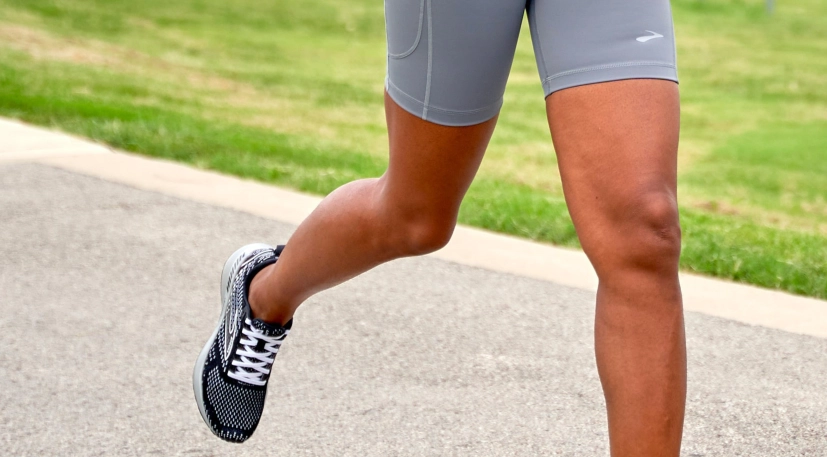
The Influence of Genetics on Athletic Performance: Fact or Myth?

The scientific and athletic communities acknowledge that genetics undoubtedly affect athletic performance. As of 2009, more than 200 gene variants had been linked with physical performance, and more than 20 had been associated with top athlete status. Athletic performance is one of the complex human traits affected by both genetic and environmental factors.
Heritability studies using the twin model provided the foundation for separating the genetic and environmental variables that contribute to human behavior and have paved the way to identify specific genes for sports performance. However, the heritability for most phenotypes necessary for top human performance is over 50% but less than 100%, indicating that environmental factors also play a significant role.
In this blog, the experts at Adnà discuss the influence of genetics on athletic performance and separate fact from myth.
Genetic Variation
It is a fact that genetics affect athletic performance. Our DNA influences many aspects of our physical traits, including the strength of skeletal muscles, the major types of fiber that make up those muscles, oxygen uptake, muscle mass, height, and metabolism. These traits determine a person's athletic ability in certain sports.
Muscle Fiber Types
Two types of muscle fibers compose skeletal muscles: fast twitch fibers and slow twitch fibers. These muscle fiber types are genetically determined.
Fast Twitch Muscle Fibers
Fast twitch muscle fibers contract rapidly but also tire quickly. These fibers benefit powerful movements like sprinting, weightlifting, and other tasks requiring power or strength. Some individuals are born with a higher percentage of fast-twitch muscle fibers.
Slow Twitch Muscle Fibers
Slow twitch muscle fibers contract slowly but can function continuously for an extended period without getting tired. Some individuals have more slow-twitch fibers. These fibers are best for endurance sports like long-distance running.
Oxygen Uptake
Genetic factors influence the aerobic endurance of an individual. Aerobic endurance refers to your body's ability to efficiently deliver and use the maximum amount of oxygen during intense exercise such as cycling or marathon running. Genetic variations in hemoglobin levels and lung capacity may affect oxygen transport.
VO2 max is the most common way to measure aerobic endurance. However, VO2 max alone does not fully relate to endurance performance because other factors like ventilatory threshold and running economy also impact performance.
Gene Variants Associated with Athletic Performance
ACTN3 and ACE are key performance genes that are associated with athletic performance. These genes have been studied in numerous populations using a range of experimental techniques. Both genes influence the fiber type that makes up skeletal muscles. Also, they have been linked with both strength and endurance.
ACTN3
The ACTN3 gene is associated with fast-twitch muscle fibers. The gene provides instructions for producing a protein, α-actinin-3, which is exclusively present in fast-twitch fibers. Geneticists have found that athletes who rely on speed and muscular strength for explosive sports have specific versions of the ACTN3 gene.
The R577X variant in this gene produces an excessive amount of short alpha-actinin-3 protein that is swiftly broken down. Individuals with the XX genotype completely lack alpha-actinin-3, leading to lower muscular strength and sprinting ability.
ACE
ACE is the most studied gene in relation to endurance performance. The ACE gene codes for the production of angiotensin-converting enzymes. It is a protein that converts the hormone angiotensin I into angiotensin II. Although the role of Angiotensin II is not entirely understood, it controls blood pressure and may also influence skeletal muscle function. ACE I/D polymorphism is a variant in the ACE gene that changes the gene's activity.
The ACE gene studies are conflicting. It was said that the I/I genotype is associated with endurance, while the D/D genotype is linked to strength and power performance. However, the findings and reports are not consistent.
Conclusion
Genetics influence athletic performance as genetic factors affect the individual’s muscle fiber types, aerobic capacity, body composition, and coordination. Although few genes contribute to athletic performance, these associations are not powerful enough to predict the athlete's success. It's crucial to know that environmental factors also highly influence athletic performance. An individual's environment and genes affect each other. While genetics may set the stage, it is the athlete's environment, dedication, and proper training that determine their performance.
Sports Performance Test

This test looks at how your genes influence your physical abilities. It is designed for all levels of sports practice, from amateurs to professional athletes.
Without sports, I don't know where I'd be today.
Adnà's Input
To discover the influence of genetics on other aspects of our lives, visit Adna's blog and explore the latest information and genetic solutions.
Other Journal: News
VIEW MORE


